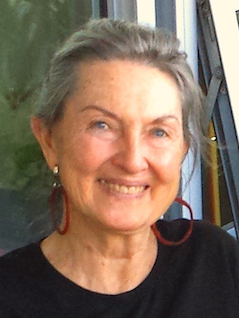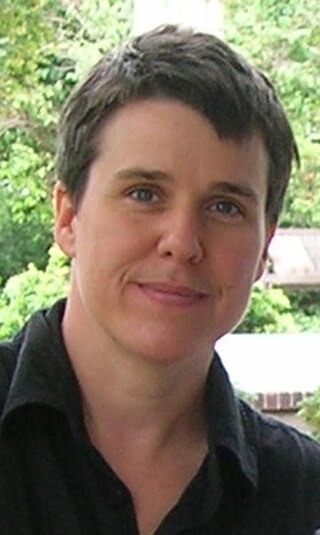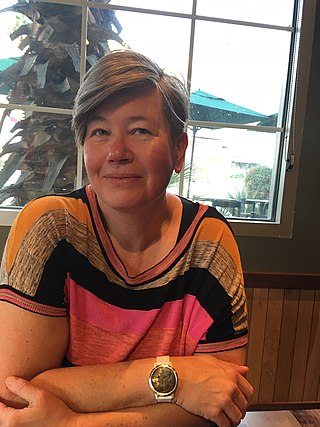Global studies (GS) or global affaires (GA) is the interdisciplinary study of global macro-processes. Predominant subjects are political science in the form of global politics, as well as economics, law, the sociology of law, ecology, environmental studies, geography, sociology, culture, anthropology and ethnography. It distinguishes itself from the related discipline of international relations by its comparatively lesser focus on the nation state as a fundamental analytical unit, instead focusing on the broader issues relating to cultural and economic globalisation, global power structures, as well of the effect of humans on the global environment.
Mark Andrew LeVine is an American historian, musician, writer, and professor. He is a professor of history at the University of California, Irvine.
Hybridity, in its most basic sense, refers to mixture. The term originates from biology and was subsequently employed in linguistics and in racial theory in the nineteenth century. Its contemporary uses are scattered across numerous academic disciplines and is salient in popular culture. Hybridity is used in discourses about race, postcolonialism, identity, anti-racism and multiculturalism, and globalization, developed from its roots as a biological term.
John Foran is an American sociologist with research interests in global climate justice; radical social movements, revolutions, and radical social change; Third World cultural studies; and Latin American and Middle Eastern studies. He has a PhD from the University of California, Berkeley and is a professor of Sociology at the University of California, Santa Barbara.
Scott Lash is a professor of sociology and cultural studies at Goldsmiths, University of London. Lash obtained a BSc in Psychology from the University of Michigan, an MA in Sociology from Northwestern University, and a PhD from the London School of Economics (1980). Lash began his teaching career as a lecturer at Lancaster University and became a professor in 1993. He moved to London in 1998 to take up his present post as Director for the Centre for Cultural Studies and Professor of Sociology at Goldsmiths College.

Arif Dirlik was a Turkish-American historian who published on historiography and political ideology in modern China, as well as issues in modernity, globalization, and postcolonial criticism. Dirlik received a BSc in electrical engineering at Robert College, Istanbul in 1964 and a PhD in history at the University of Rochester in 1973.

Ariel Salleh is an Australian sociologist who writes on humanity-nature relations, political ecology, social change movements, and ecofeminism.
Máirtín Mac an Ghaill is a social and educational theorist. He is the author of The Making of Men: Masculinities, Sexualities and Schooling, The RoutledgeFalmer Reader in Gender and Education (ed), Education and Masculinities and Contemporary Racisms and Ethnicities.

Asoka Bandarage is a Sri Lankan academic specializing in international development, political economy, women and gender studies, multiculturalism, conflict analysis and resolution, peace and security, South Asia, Sri Lanka, population and ecology. She has headed the Women's Studies Program at Mount Holyoke College and also taught at institutions including Georgetown University’s Public Policy Institute in Washington, DC. She is also a yoga instructor.

Diane Rosemary Elson is a British economist, sociologist and gender and development social scientist. She is Professor Emerita of sociology at the University of Essex and a former professor of development studies at the University of Manchester.
Toby E. Huff is an American academic and emeritus professor at the University of Massachusetts Dartmouth. He was born in Portland, Maine. He was trained as a sociologist but has research interests in the history, philosophy and sociology of science. He has published Weber-inspired studies of the Arab and Muslim world, as well as China, including field work in Malaysia. He is best known for his book The Rise of Early Modern Science: Islam, China and the West. Now in a third edition, it has been translated into Arabic (twice), Chinese, Korean, and Turkish. His explanation of the cultural and scientific divergence between Arabic/Islamic and European science in the medieval period has been widely influential, especially among economic historians such as Richard Lipsey, Jan Luiten van Zanden, Peer Vries, among others.

Ara Wilson is a university professor and author.
Ronaldo Munck is an Argentine sociologist who has worked on the political sociology and globalisation of Latin America and Ireland.
Roksana Bahramitash is an Iranian-born Canadian sociologist, author, and professor. Her work focuses on women, employment and the informal economy in the Middle East and North Africa (MENA), as well as gender segregation in Islam, and microeconomics. In post-revolution Iran, Bahramitash was working on improving peasant women's literacy and access to economic development resources.
Richard Münch is a German sociologist and, as of 2013, emeritus of excellence at the University of Bamberg. He graduated from the Hebel Gymnasium Pforzheim in 1965. He studied sociology, philosophy, and psychology at the University of Heidelberg from 1965 to 1970, earning the degrees of Magister Artium in 1969 and Dr. phil. in 1971. His habilitation in the field of sociology took place at the University of Augsburg in 1972 where he was employed as a research assistant at the Chair of Sociology and Communication Studies from 1970 to 1974. From 1974 to 1976 he taught as Professor of Sociology at the University of Cologne, from 1976 to 1995 as Professor of Social Science at the Heinrich Heine University of Düsseldorf, and from 1995 to 2013 as Professor of Sociology at the Otto Friedrich University of Bamberg where he was appointed Emeritus of Excellence in 2013. Since 2015, he has been a senior professor of social theory and comparative macrosociology at Zeppelin University in Friedrichshafen, Lake Constance.

The Department of International Development (DID), formerly known as King's International Development Institution, is an inter-disciplinary development department located within the Faculty of Social Science and Public Policy in the School of Global Affairs at King's College London. DID was launched in 2013 with a focus on the phenomena faced by middle-income developing countries. DID is a young, innovative, and contemporary development studies department that is the first research centre in the UK that mixes development studies and emerging markets. Its research revolves around development theory, political economy, economics, business, management, geography, and social policy.
Kum-Kum Bhavnani is a university professor, filmmaker, and author. As of 2018, she is a Professor of Sociology and Distinguished Professor with Feminist Studies and Global and International Studies at the University of California, Santa Barbara, where she is Chair of the interdisciplinary program in Women, Culture, Development. She served as the Chair (2019–20) of the University of California Academic Senate.

Sasha Roseneil is a group analyst and a psychoanalytic psychotherapist. Roseneil became the ninth vice chancellor of the University of Sussex in August 2022.
Salvador Santino Regilme is a Dutch International Relations scholar and political scientist focusing on international human rights norms, global governance, democratization, United States foreign policy, and foreign aid. He is a tenured Associate Professor of International Relations based at the Institute of History within the Faculty of Humanities of Leiden University, the Netherlands.
Kalpana Wilson is an author and scholar with a focus on South Asia. She is a founding member of the South Asian Solidarity Group. She has taught at the London School of Economics, SOAS University of London, and Birkbeck, University of London.






